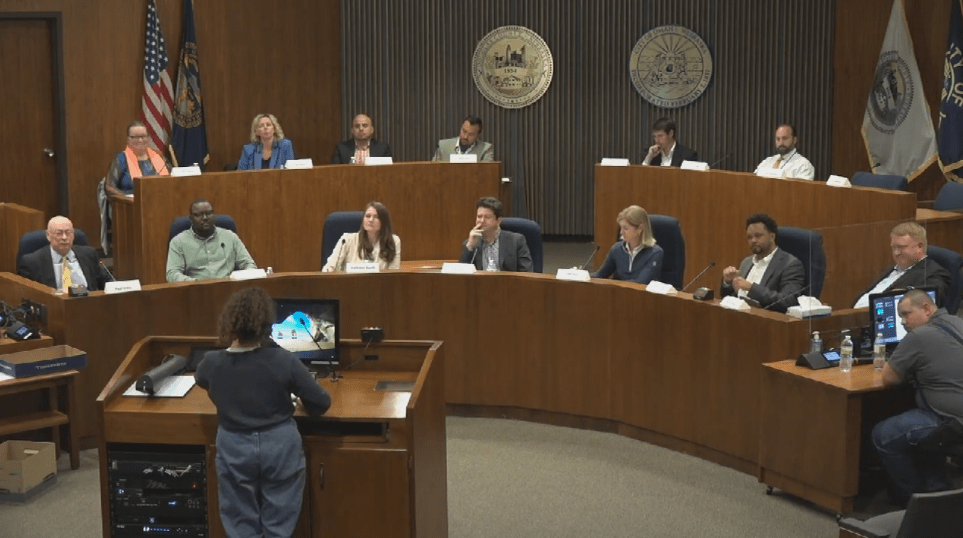On May 26, One Omaha’s Engagement Manager Alex O’Hanlon presented the following testimony to the Omaha City Charter Convention. You can watch Alex’s testimony here.
I am here today on behalf of One Omaha. One Omaha is a nonprofit organization that empowers people where they live through education, training and engagement to develop thriving neighborhoods.
We have been working with neighborhood and community groups for six years and over this time we have built trusting two-way relationships. I’m here today to make recommendations for amendments to the Home Rule Charter from this perspective.
Our suggestions include recommendations that will lead to better representation of residents in city departments, a more modern and dynamic city layout, and increased trust in city government due to better resident engagement.
Our recommendations are as follows:
To provide for better representation of Omaha residents we recommend amending sections 3.09, 3.10, 3.11(1), 3.12, 3.14A, 3.19, 5.01, 6.03, and 7.02, to prevent any head of a city department from holding public office in another municipality. Furthermore we recommend that all heads of city departments should be required to be residents of the city of Omaha.
These positions make decisions that affect residents and the best way to ensure that Omaha residents benefit from top-level decisions is to have top-level decision makers be Omaha residents and not people from other municipalities.
It is egregious that a city department head can hold a position of power in Omaha while simultaneously holding a position of power in a separate municipality with differing priorities than the city of Omaha in negotiations. This is a direct conflict of interest, period.
To aid in the development and redevelopment of Omaha as a modern and dynamic city we recommend amending Section 7.05 to require that the master plan be updated every 10 years.
To increase trust in local government we recommend amending the charter to create and standardize city-led community engagement for development, especially those developments receiving city subsidies such as TIF.
The goal of robust engagement is to build a strong city. A strong city is made up of strong neighborhoods and strong neighborhoods are made up of engaged residents.
Engagement strengthens relationships between residents, developers and the city, allowing for sustainable growth that meets the needs of all parties involved. This helps to keep people here, reduces brain drain and displacement, and contributes to the workforce.
A significant reason why One Omaha was created by neighborhood leaders is because those leaders did not feel like they were being engaged in city decisions that impacted their communities. We love the work we do in supporting strong neighborhood groups. However, the city is in a unique position to set parameters around engagement and requirements for future developments.
These guidelines need to mandate that developers create a better engagement process that emphasizes resident voices at an earlier stage when those views can be reflected in the development. This will result in better developments, increased trust in government, support for neighborhood development, and overall satisfaction of residents.
Our current master plan was created in 1997. It represents the overall vision of Omaha for landuse and actions necessary to fulfill that vision. Just to give you a little context, the #1 movie of that year was Men In Black. Bill Clinton was president and that was the last year the Huskers won a national championship.
Development patterns were radically different then they are today. Fashion has changed and so have development patterns and it is the city’s responsibility to be a leader in updating the vision for the city.

